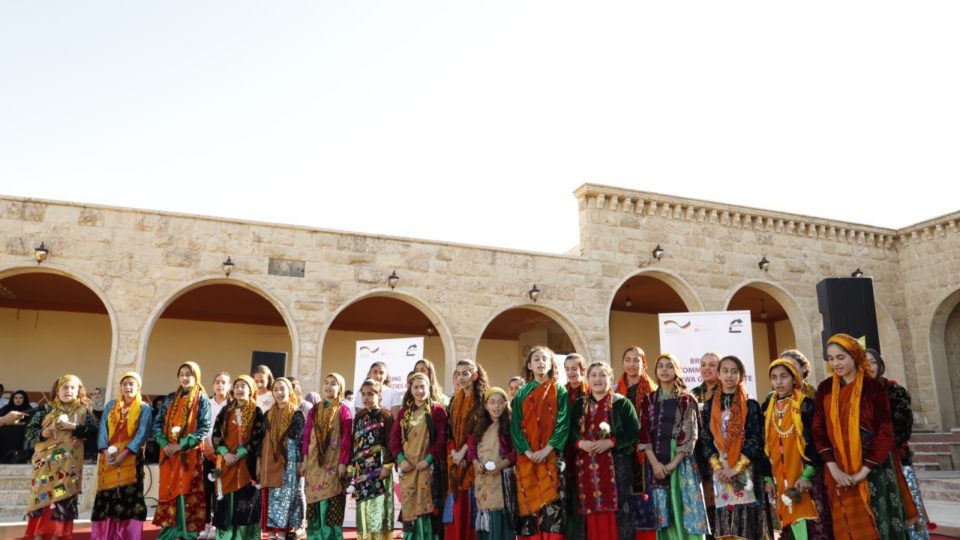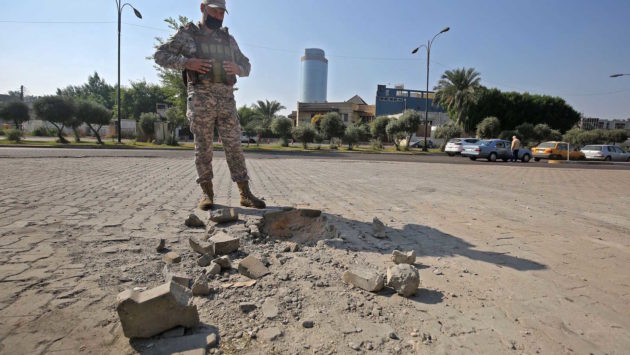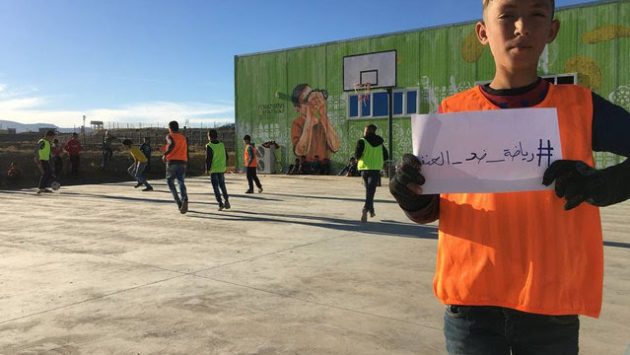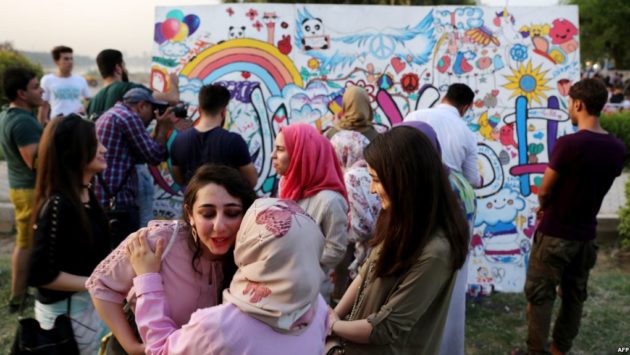Peaceful Coexistence in The First Kokamila Peace Festival in The City of Karamlis
Under the slogan “You are the branches of the vine”, Bridge To.. (UPP) organized its project to build bridges between the Nineweh communities in collaboration with the Raja Organization for Development and Growing and the Karamlis Chaldean. The first Kokamila Peace Festival on Easter day at St. Barbara’s Monastery on 25 April 2019.
Kokamila or Karamlis, is an Iraqi town located in Nineweh’s Plain. It is more than 5,000 years old and the majority of its inhabitants are Christians. Thousands of Christian families flee to this town after the war against Daesh.
The festival began with a massive reception by the girls of the region of Karamlis wearing their traditional costumes and welcoming the Bus of Peace, which was loaded with the most beautiful expressions of peace and love by Muslims who wrote peace messages and chose them from the fragrant Assyrian civilization and from the rubble of the forces of terror. Muslims gave white roses to the young christian girls to demonstrate their love between towards the Christians.
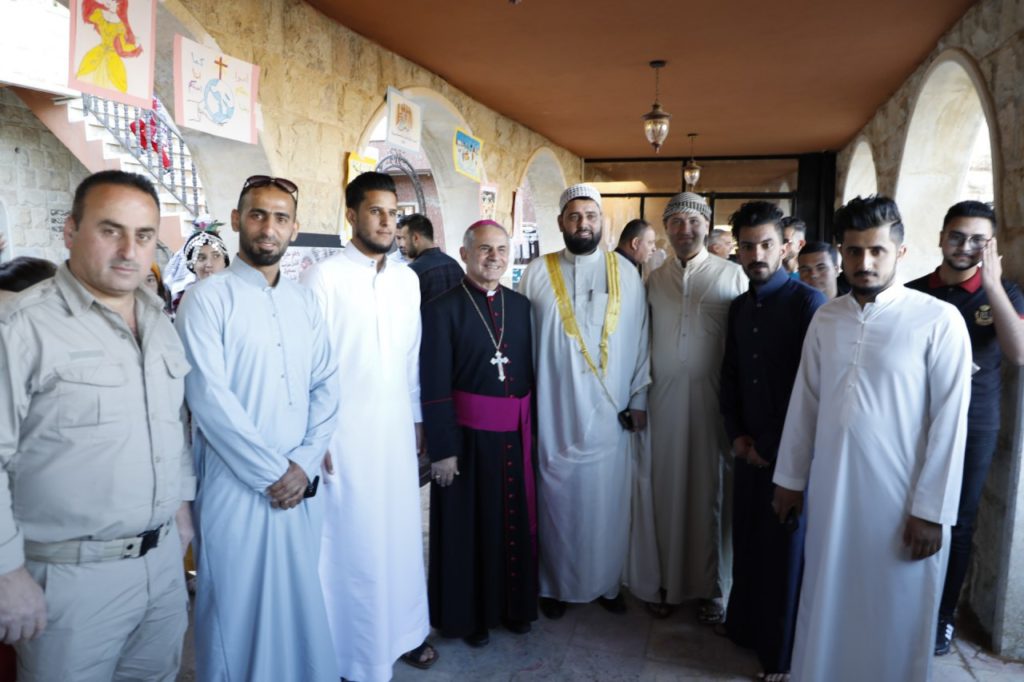
After that, the festival began with a speech of the pastor of the Chaldean Diocese of Mosul and the hometown of Archbishop Mikhail Najib Domenici, followed by the message of Mosul, read by Sheikh Rami Abadi, and then a word from the Italian organization, Bridge to.. (UPP), Which was read by Emad Sobeih Korkis, assistant director of the Project for Bridging the Nineweh Communities, and then a speech by the Raja organization for Development read by Mrs. Sarah.
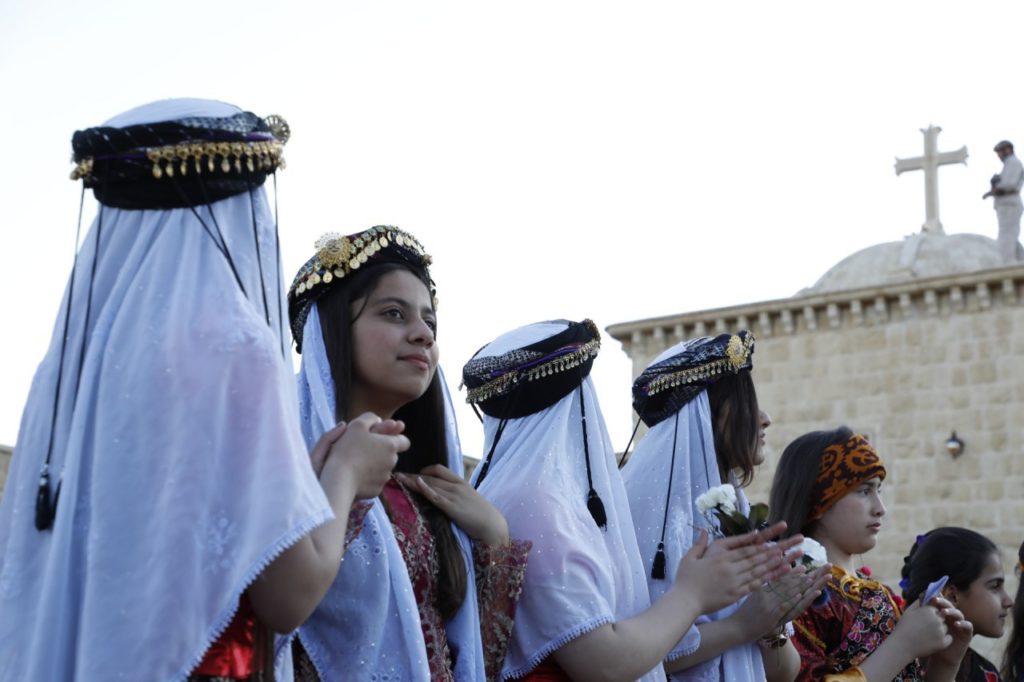
Then, the festival moved to the folklore and cultural aspects, where songs of love, peace were sang by beautiful young girls to express the the Carmelite heritage, as well as reading Syriac poetry. After that, there were lots of fun games to play between the participants.
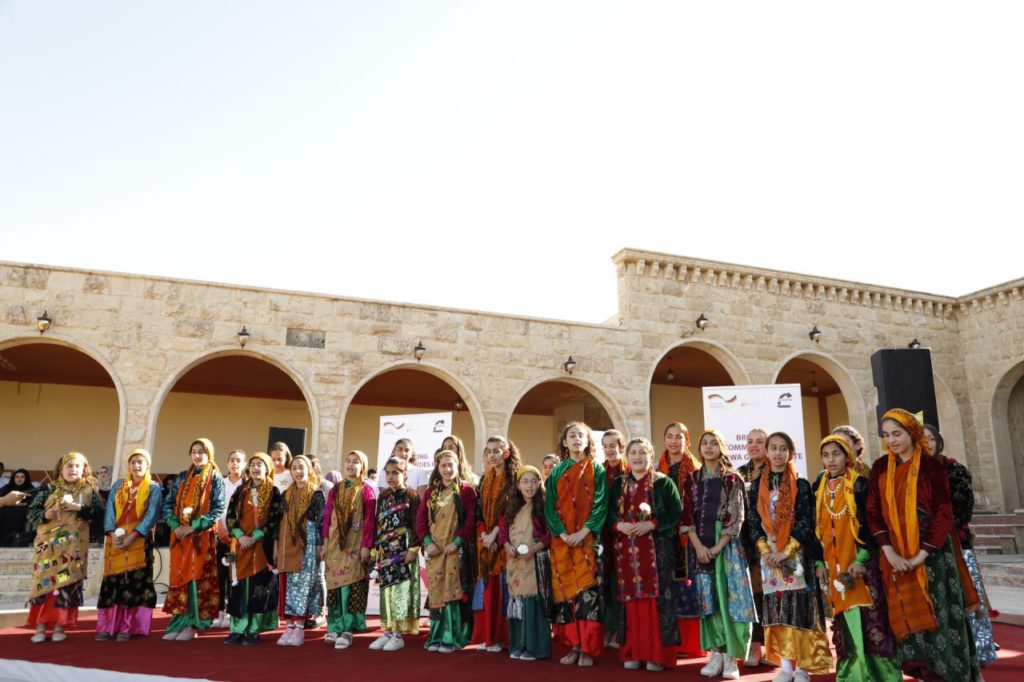
At the end of the festival, the organizers of the event gave certificates of appreciation to the participants and they lunched balloons and pigeons together for peace just before saying farewell to the bus of peace.
“They returned to their hometowns and lands after years of occupation to confirm their originality and their belonging to their homeland, they returned with all their colors and religious and ethnic affiliations, they came from Mosul to build bridges of peace and love with their brothers and sisters in this land and to participate in Easter day”, said Raed Michael to Izidi 24, the country director of the Bridge To.. organization and the strategic adviser for the project of bridging communities in Ninweh. He continues ” We saw joy in the eyes of the attendees and this resembles their humanity and their will to live together, this is what we simply call Bridging Communities Between the societies of Ninewa.
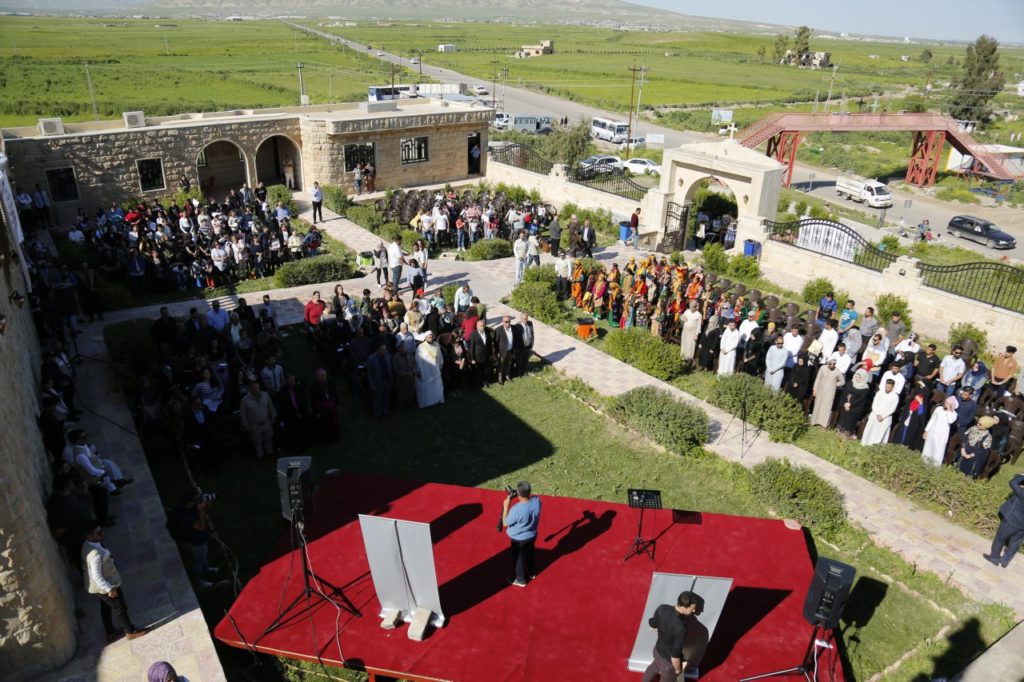
“Our message to the non-Muslim people is a message of love, peace and tranquility, we love them as ourselves and what happened to them has also happened to us.” Said Sheikh Amer Al-Abady.
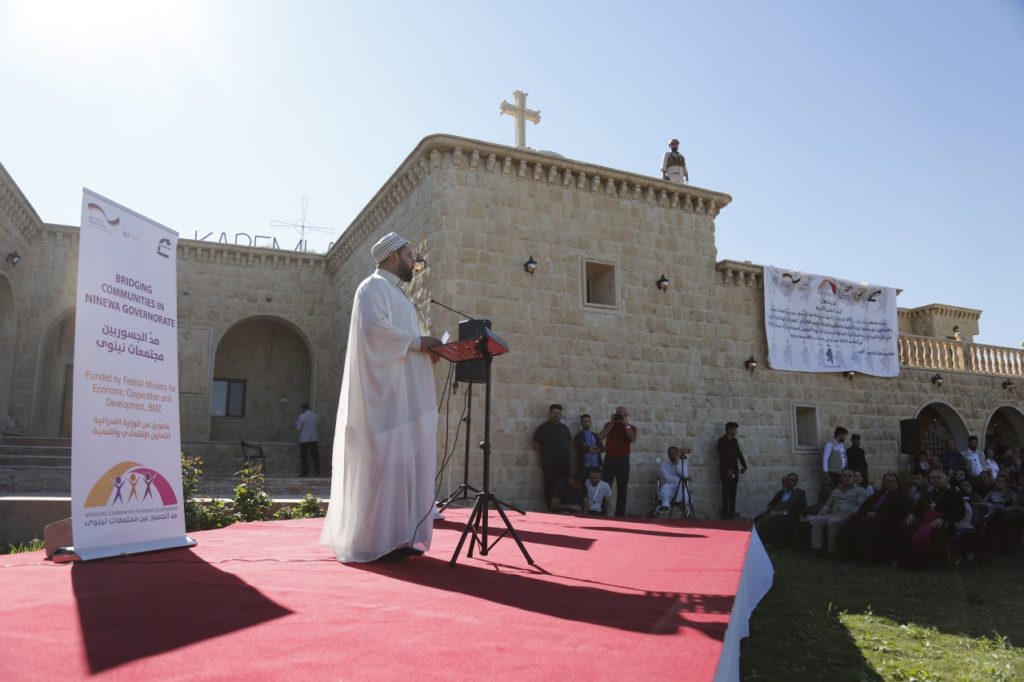
The festival ended with a huge amount of love and affection and building bridges of communication, love and smiles on the faces of more than three hundred people of different components, nationalities and religions.
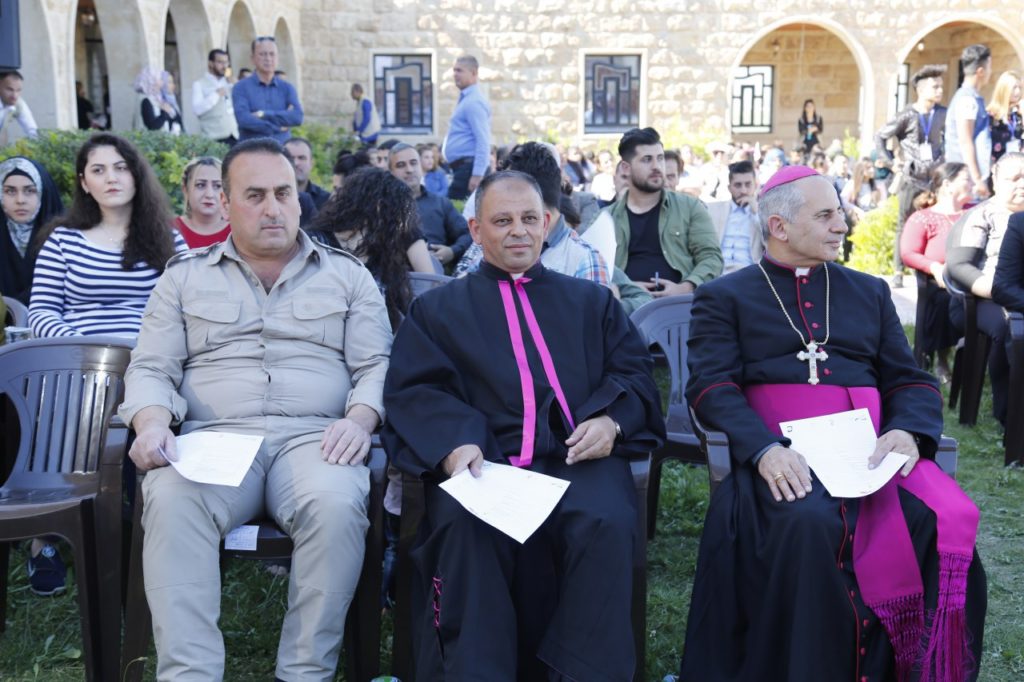
Bridging Communities in Nineveh project in its second phase has been divided into two parts: the first is the rehabilitation of a group of schools in Nineveh governorate, the capacity building of the educational staff and the implementation of activities that promote peace with the students. The second part is developing the ability of to civil society activists to be agents of peace and to solve conflicts in their cities. It will include several activities, events, campaigns and work with radio stations to broadcast peace programs. The project is funded by the Federal Ministry for the Cooperation of Economics and Development, and the implementation of the UPP.

